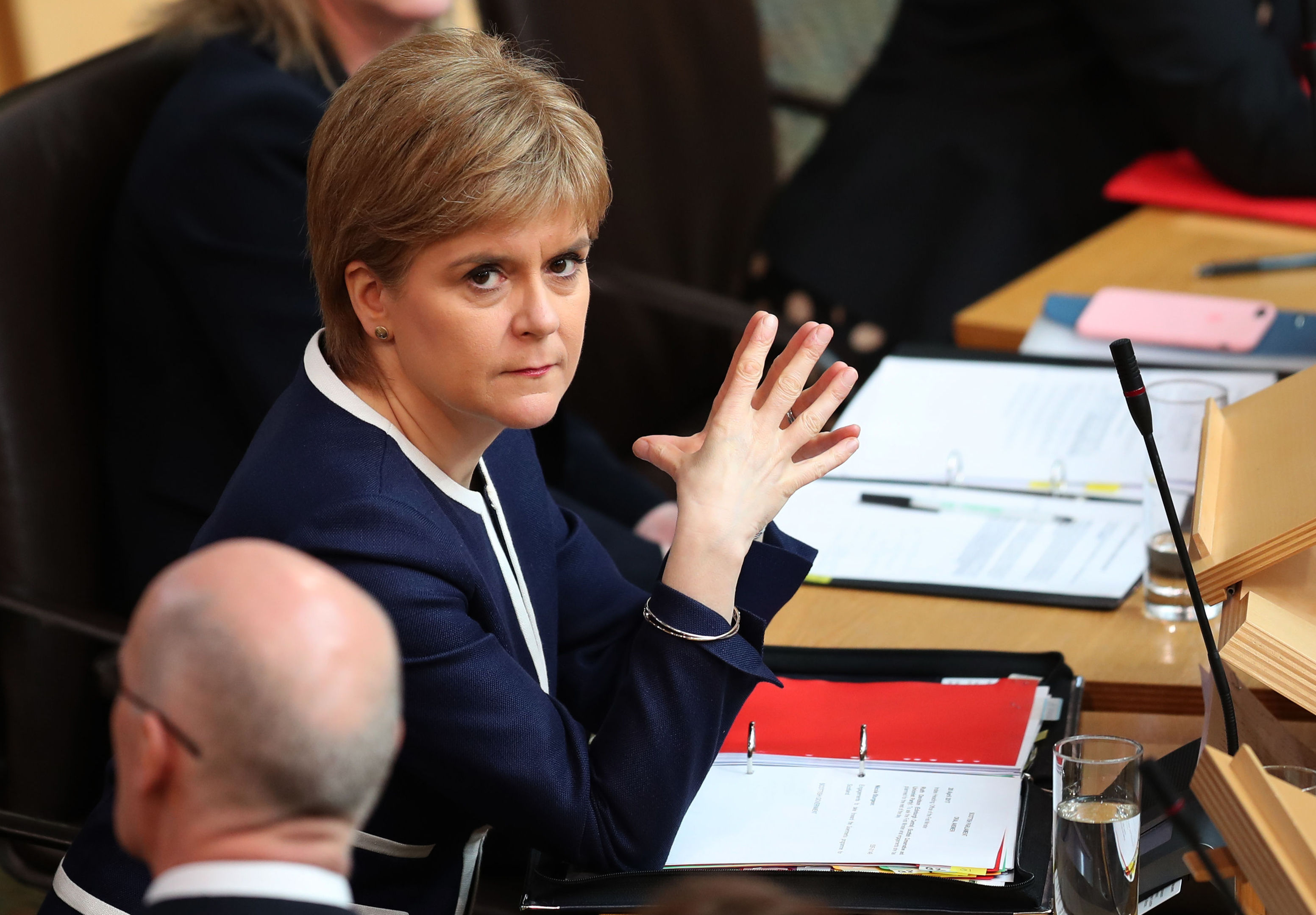Just when you thought it was safe to go back into the community hall, another election turns up. It seems like we have been on some voting diet – lots of roughage and prunes, not much meat.
Yet this election can only be a feast.
Think of the ballot boxes and registration tables of the polling station as a party – it’ll be the last time we choose between saltire bunting and the red, white and blue.
At stake is the Union.
A clear result for the SNP would give them a mandate for independence – while a dent in support would mark the end of what the Tories call “peak Nat”.
This election underlines how Scotland’s politics have become an old firm of Tory versus Nat.
Theresa May’s overriding purpose is to get a firm grip on her own party and Brexit – it just so happens she cannot do this without also poking Scotland into action.
North of the border, May wants to make it a vote on independence.
“A vote for the Scottish Conservatives in June will do two things. It will send a clear message of opposition to the SNP’s divisive plans for a second independence referendum, and it will strengthen my hand as I negotiate on behalf of the whole United Kingdom with the EU,” she said.
The SNP could also say the election is about independence – a vote for them is a vote for indy.
They won’t. Right now they are trying out variations of words which mean that a vote for the SNP is a vote for the right of Holyrood to hold a referendum.
Right time?
It sounds like the same thing but it isn’t.
The SNP are in a very strong position.
Looking at the 50% of the vote they won in the 2015 election and the party’s dominance of Scottish politics, you’d think making this next general election a referendum-by-any-other-name was the obvious thing.
They polled more votes in 2015 than the Tories, Labour and Lib Dems combined.
The problem for Sturgeon is she doesn’t feel the time is right.
The SNP have become this powerful because they don’t make elections about independence – they phrase all the campaigning around “standing up for Scotland”.
It’s a slogan which pulls in wide support, wider than exists for independence.
They will not therefore campaign that a vote for them is a vote for independence but will instead fudge that principle into a different one – the right of Holyrood to determine its own future.
Scotland’s party?
Voters might like to stand back, open mouthed, and eventually say: “But you want independence, why don’t you campaign to get it in this election.”
That certainly is what the unionist parties will be saying: “The SNP is the independence party, they have been demanding a vote on independence, well use this vote to either back indy or not.”
The SNP will, however, try to say they are Scotland’s party and only want what the “will” of the people is – by which they mean the will of parliament.
All of these sleight of hands by May and Sturgeon are perfectly legitimate.
The question is what do they add up to?
We can assume the Tories will win the general election.
Labour are catastrophically behind in the polls, have no “new” element to excite a change and are compromised on Brexit.
As Labour have voted for Brexit measures in the House of Commons, they can’t switch to a Remain position, even if they wanted to.
Corbyn finds himself on the same side as the Tories – a fatal flaw in our democracy when it comes to winning support.
Brexit stance
The SNP have begun to frame the surprise election as a move towards a hard Brexit – expect to hear a lot more of this in the next seven weeks.
This is contrary to the prevailing analysis, which is that a stronger Tory majority would release May from the grip of the British nationalist wing.
It seems far more likely May would use a mandate to soften Brexit than harden it for the simple reason she is not a Tory Eurosceptic by habit.
So the Tories win and May is in charge. That is good for Brexit as she isn’t an ideologue.
It is also good for women in public life. She’ll have fought and won on her own terms.
But it is bad for social policy, as she is a supporter of cuts to benefits and overall budget reductions.
Scotland continues its astonishing switch to the nationalists but inevitably, the SNP loses some support, perhaps because Tory, Labour and the Lib Dems come to an unofficial arrangement that they do not jeopardise each other’s votes.
And there’s Nicola’s dilemma.
She is bound to win overwhelming support, but how does she make that look like a triumph and not a missed opportunity?
Nationalists might begin to ask how come support which dwarfs anything the Labour Party ever won in Scotland is still not enough to progress the agenda?
She must be wondering: if not now, then when for independence?
